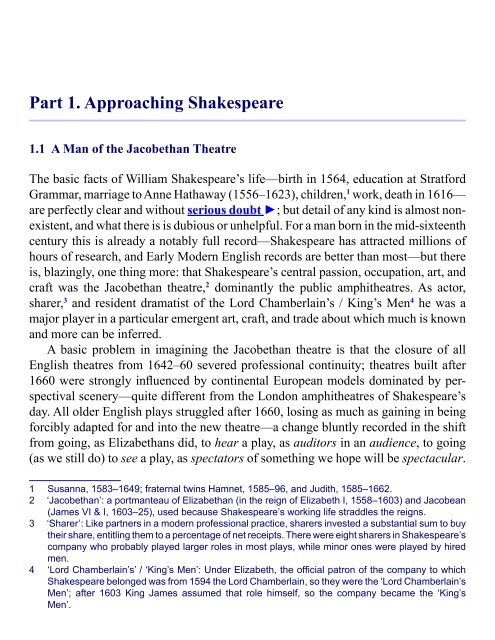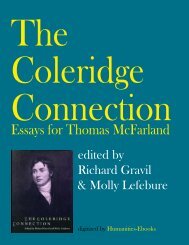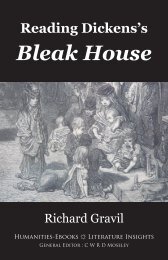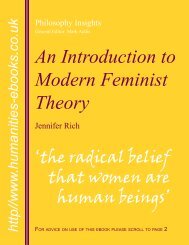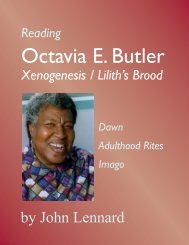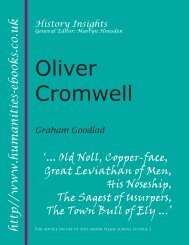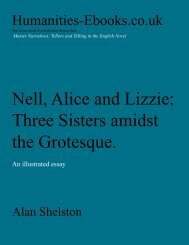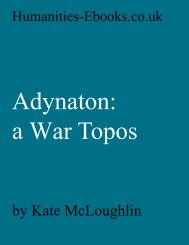William Shakespeare - Humanities-Ebooks
William Shakespeare - Humanities-Ebooks
William Shakespeare - Humanities-Ebooks
Create successful ePaper yourself
Turn your PDF publications into a flip-book with our unique Google optimized e-Paper software.
Part 1. Approaching <strong>Shakespeare</strong><br />
1.1 A Man of the Jacobethan Theatre<br />
The basic facts of <strong>William</strong> <strong>Shakespeare</strong>’s life—birth in 1564, education at Stratford<br />
Grammar, marriage to Anne Hathaway (1556–1623), children, work, death in 1616—<br />
are perfectly clear and without serious doubt ►; but detail of any kind is almost nonexistent,<br />
and what there is is dubious or unhelpful. For a man born in the mid-sixteenth<br />
century this is already a notably full record—<strong>Shakespeare</strong> has attracted millions of<br />
hours of research, and Early Modern English records are better than most—but there<br />
is, blazingly, one thing more: that <strong>Shakespeare</strong>’s central passion, occupation, art, and<br />
craft was the Jacobethan theatre, dominantly the public amphitheatres. As actor,<br />
sharer, and resident dramatist of the Lord Chamberlain’s / King’s Men he was a<br />
major player in a particular emergent art, craft, and trade about which much is known<br />
and more can be inferred.<br />
A basic problem in imagining the Jacobethan theatre is that the closure of all<br />
English theatres from 1642–60 severed professional continuity; theatres built after<br />
1660 were strongly influenced by continental European models dominated by perspectival<br />
scenery—quite different from the London amphitheatres of <strong>Shakespeare</strong>’s<br />
day. All older English plays struggled after 1660, losing as much as gaining in being<br />
forcibly adapted for and into the new theatre—a change bluntly recorded in the shift<br />
from going, as Elizabethans did, to hear a play, as auditors in an audience, to going<br />
(as we still do) to see a play, as spectators of something we hope will be spectacular.<br />
Susanna, 1583–1649; fraternal twins Hamnet, 1585–96, and Judith, 1585–1662.<br />
‘Jacobethan’: a portmanteau of Elizabethan (in the reign of Elizabeth I, 1558–1603) and Jacobean<br />
(James VI & I, 1603–25), used because <strong>Shakespeare</strong>’s working life straddles the reigns.<br />
‘Sharer’: Like partners in a modern professional practice, sharers invested a substantial sum to buy<br />
their share, entitling them to a percentage of net receipts. There were eight sharers in <strong>Shakespeare</strong>’s<br />
company who probably played larger roles in most plays, while minor ones were played by hired<br />
men.<br />
‘Lord Chamberlain’s’ / ‘King’s Men’: Under Elizabeth, the official patron of the company to which<br />
<strong>Shakespeare</strong> belonged was from 1594 the Lord Chamberlain, so they were the ‘Lord Chamberlain’s<br />
Men’; after 1603 King James assumed that role himself, so the company became the ‘King’s<br />
Men’.


